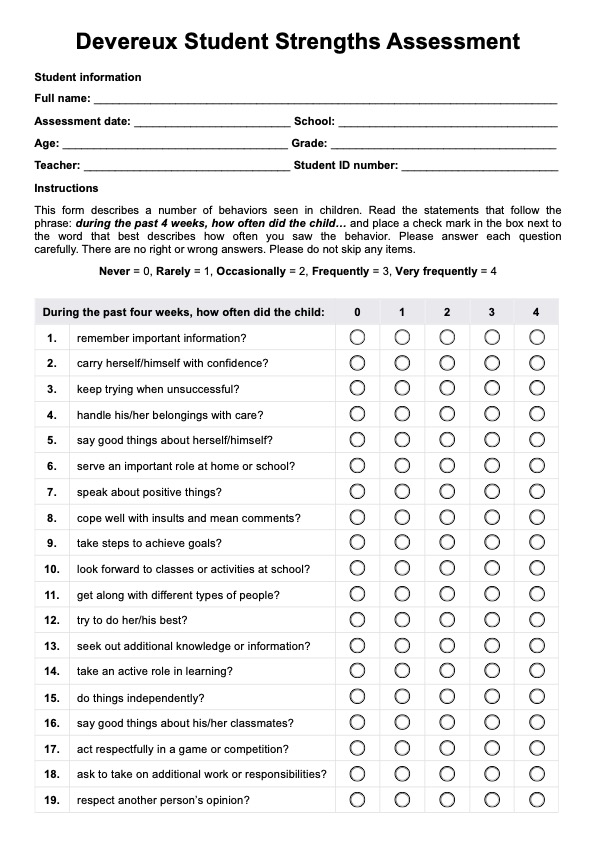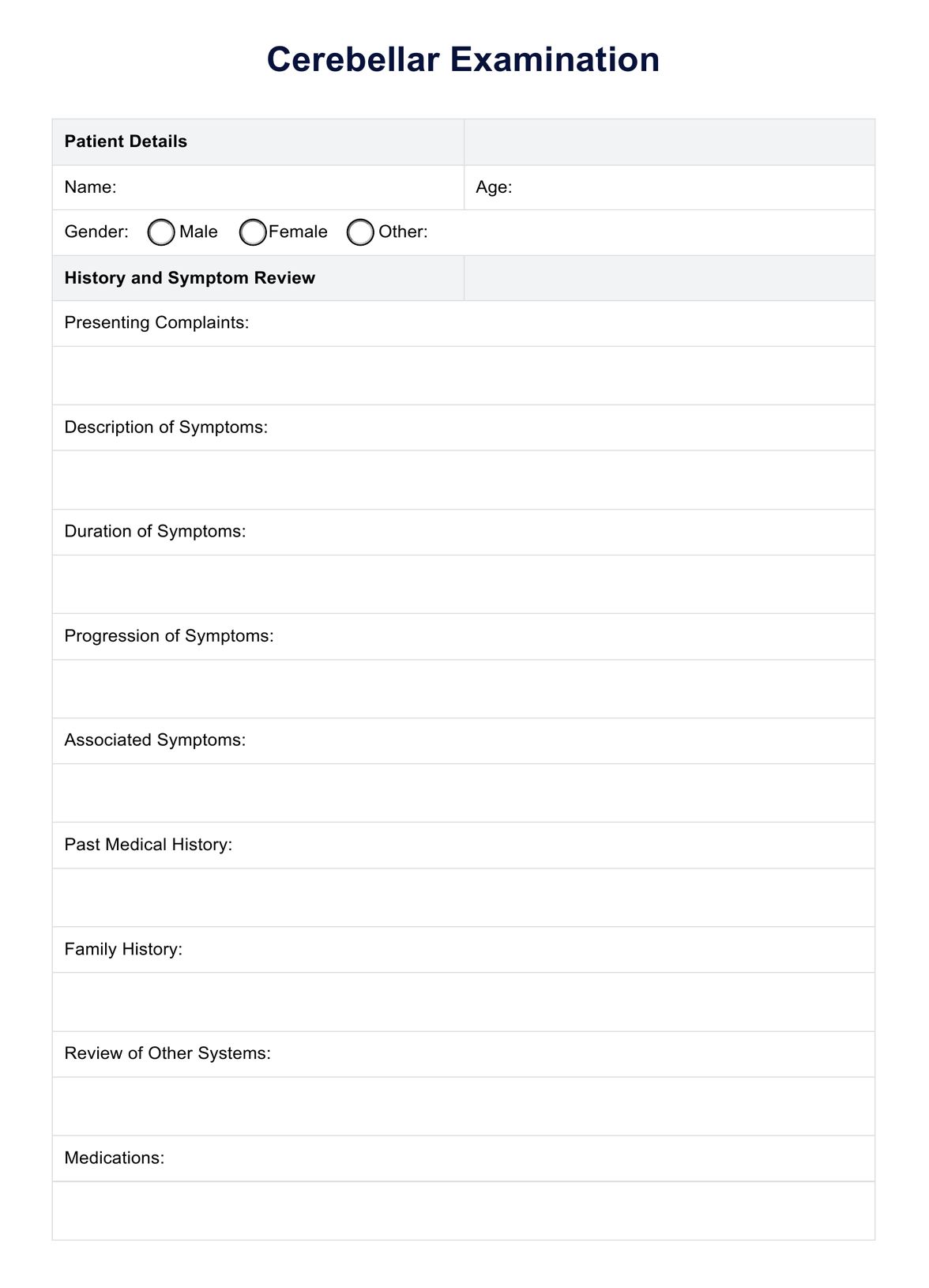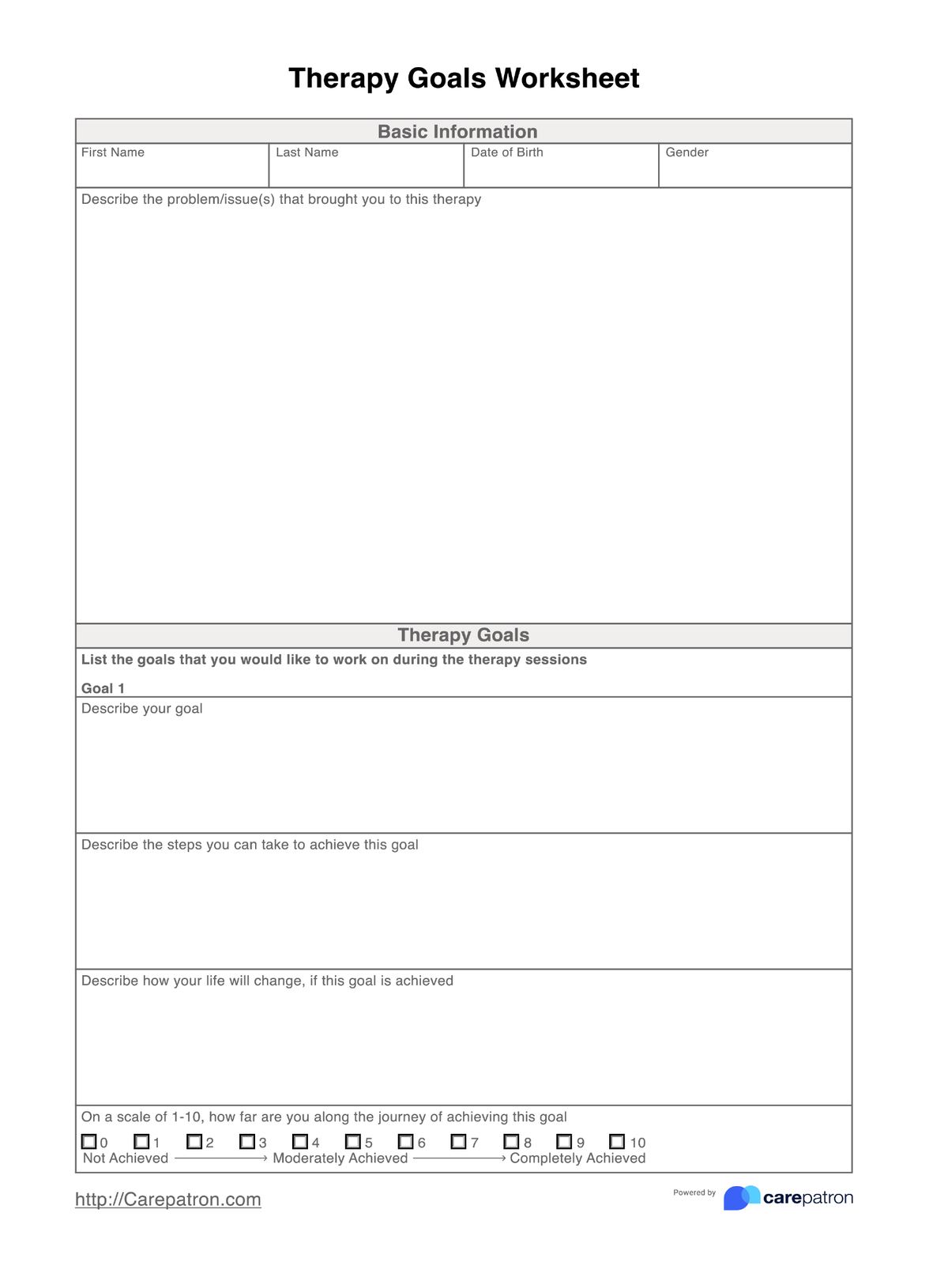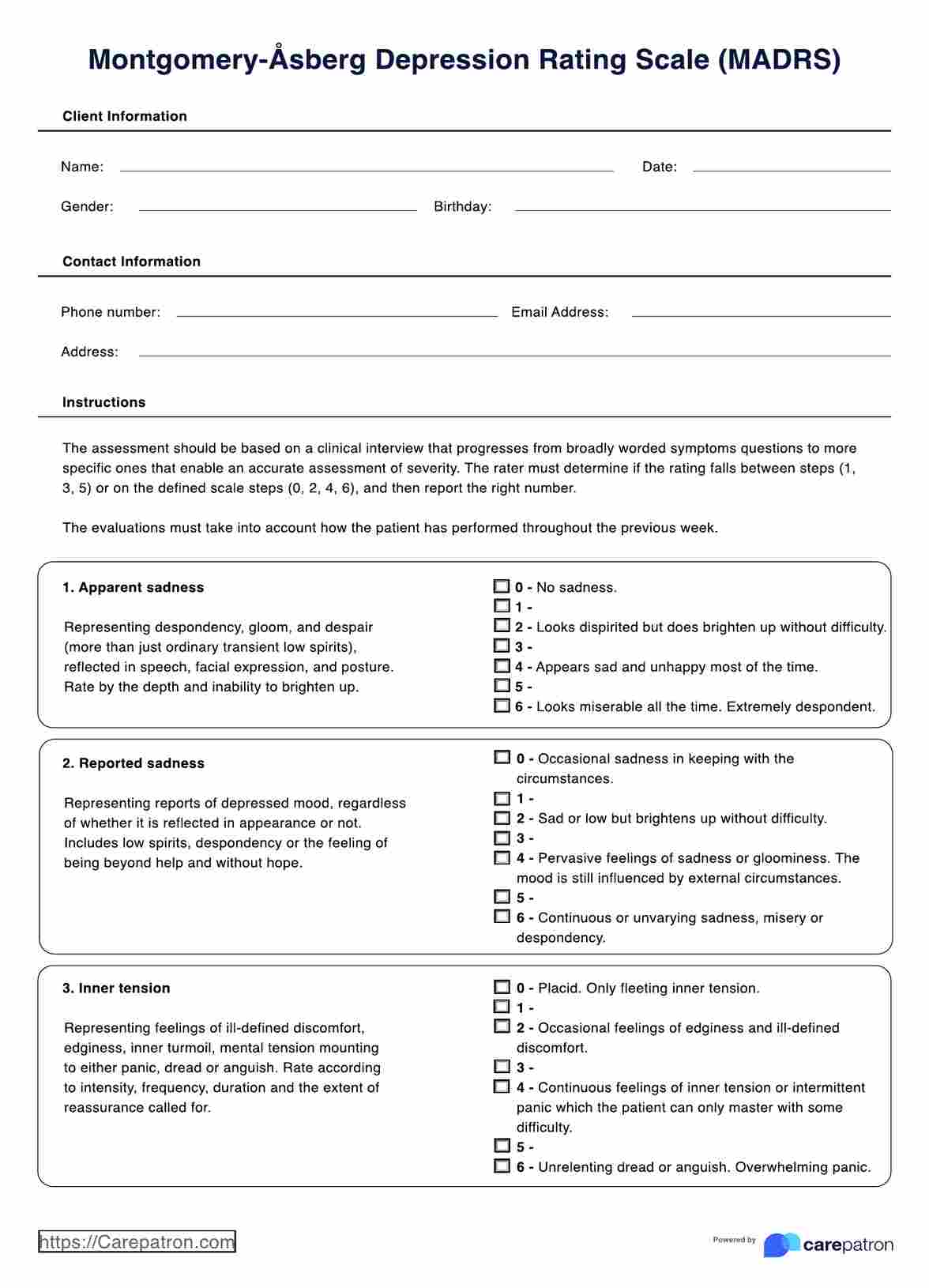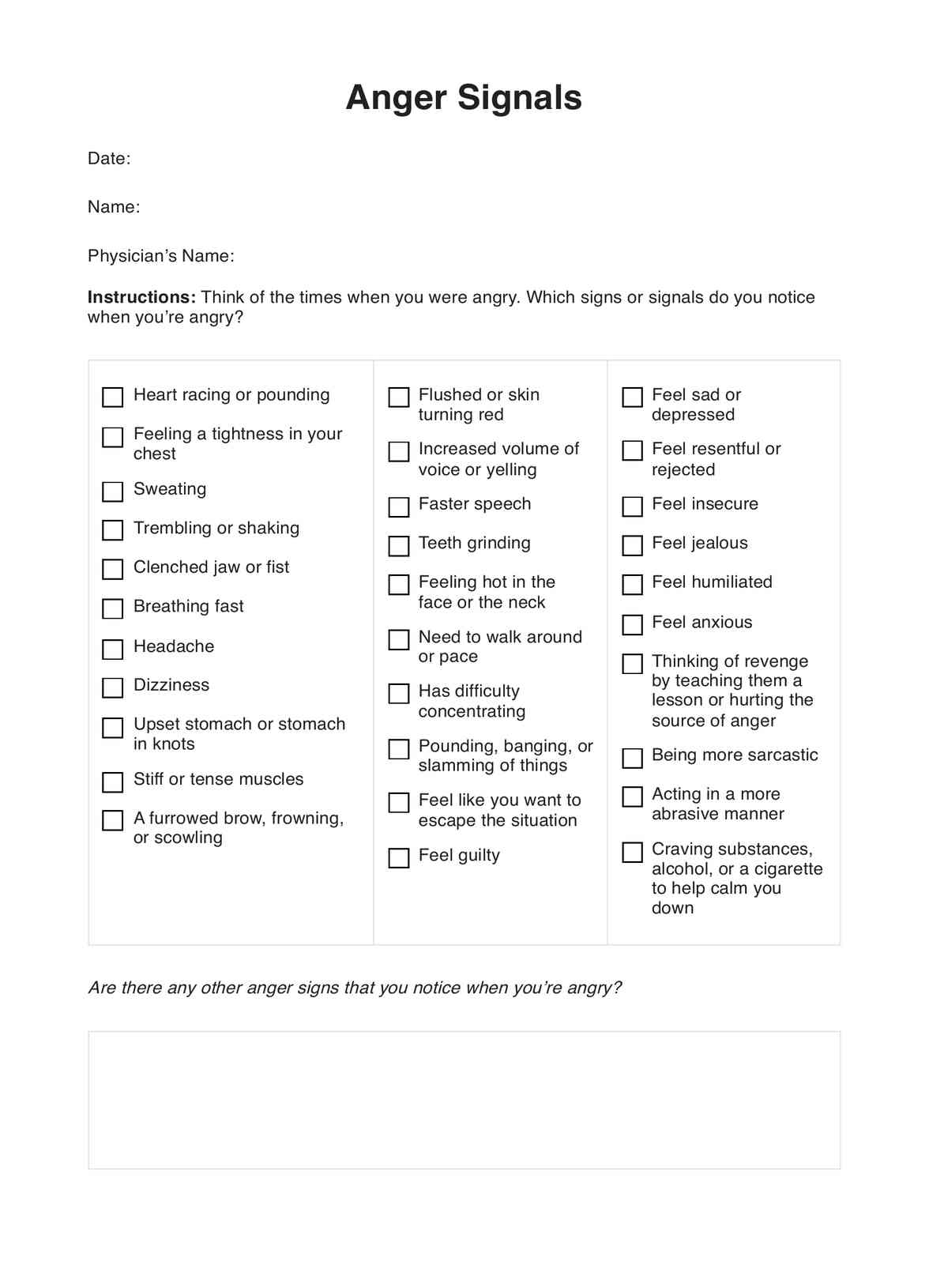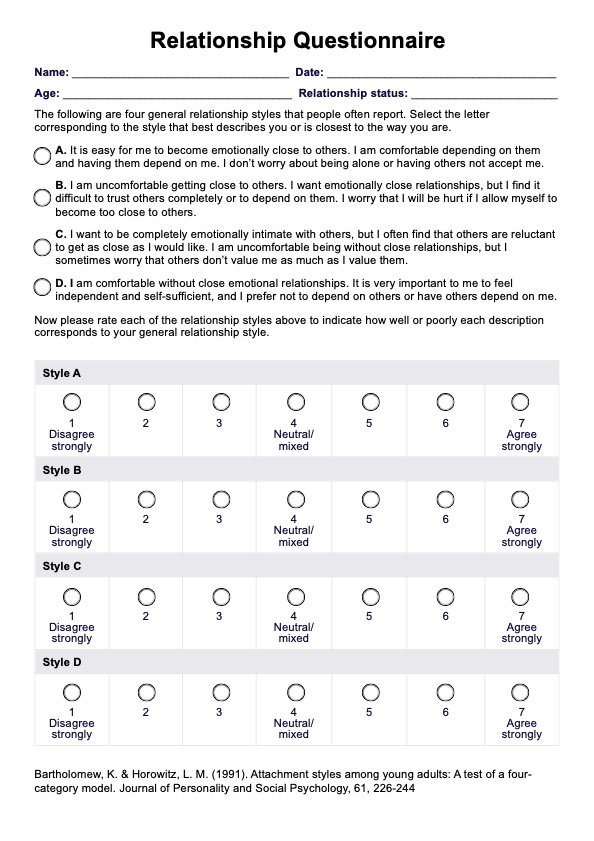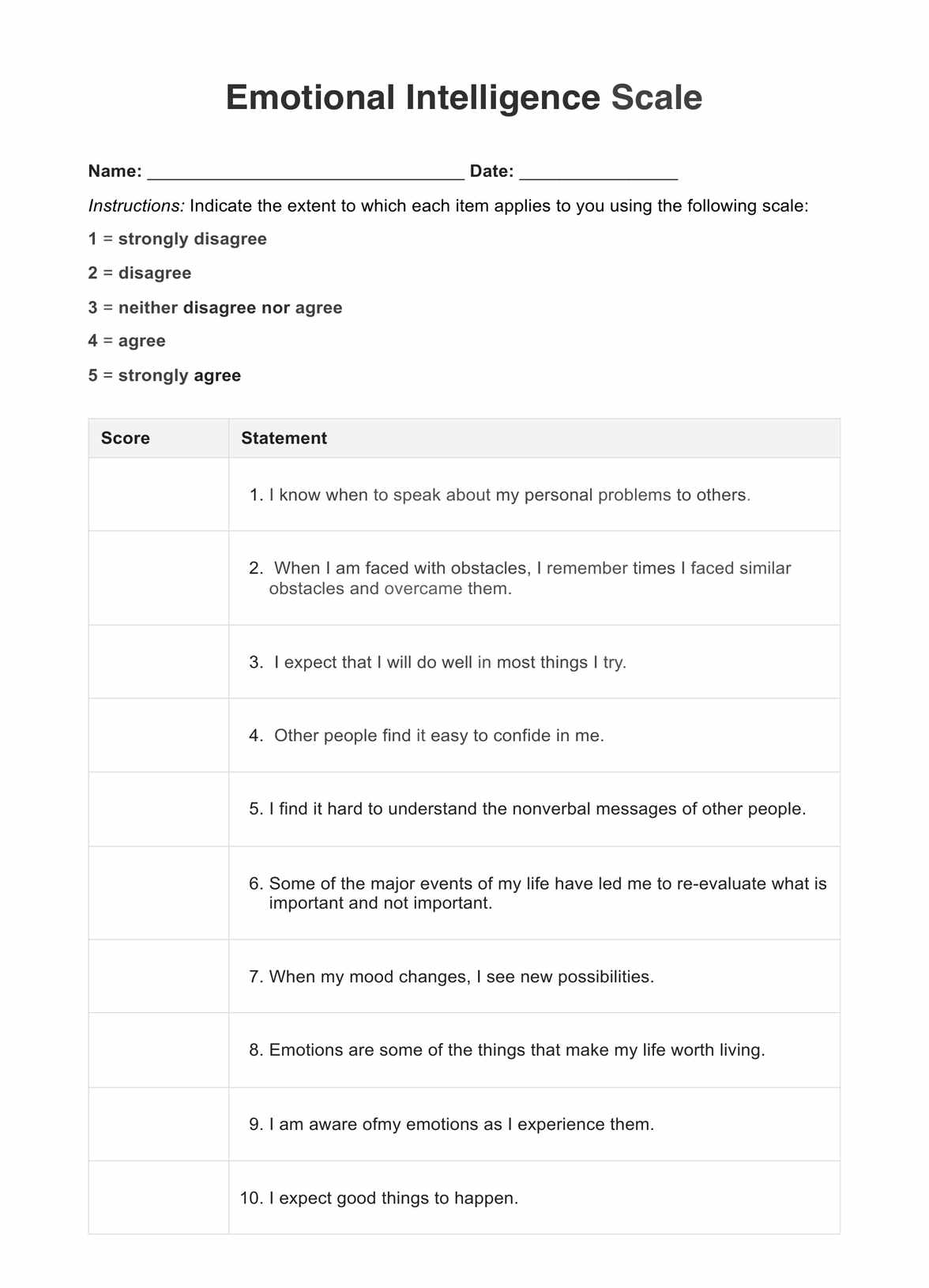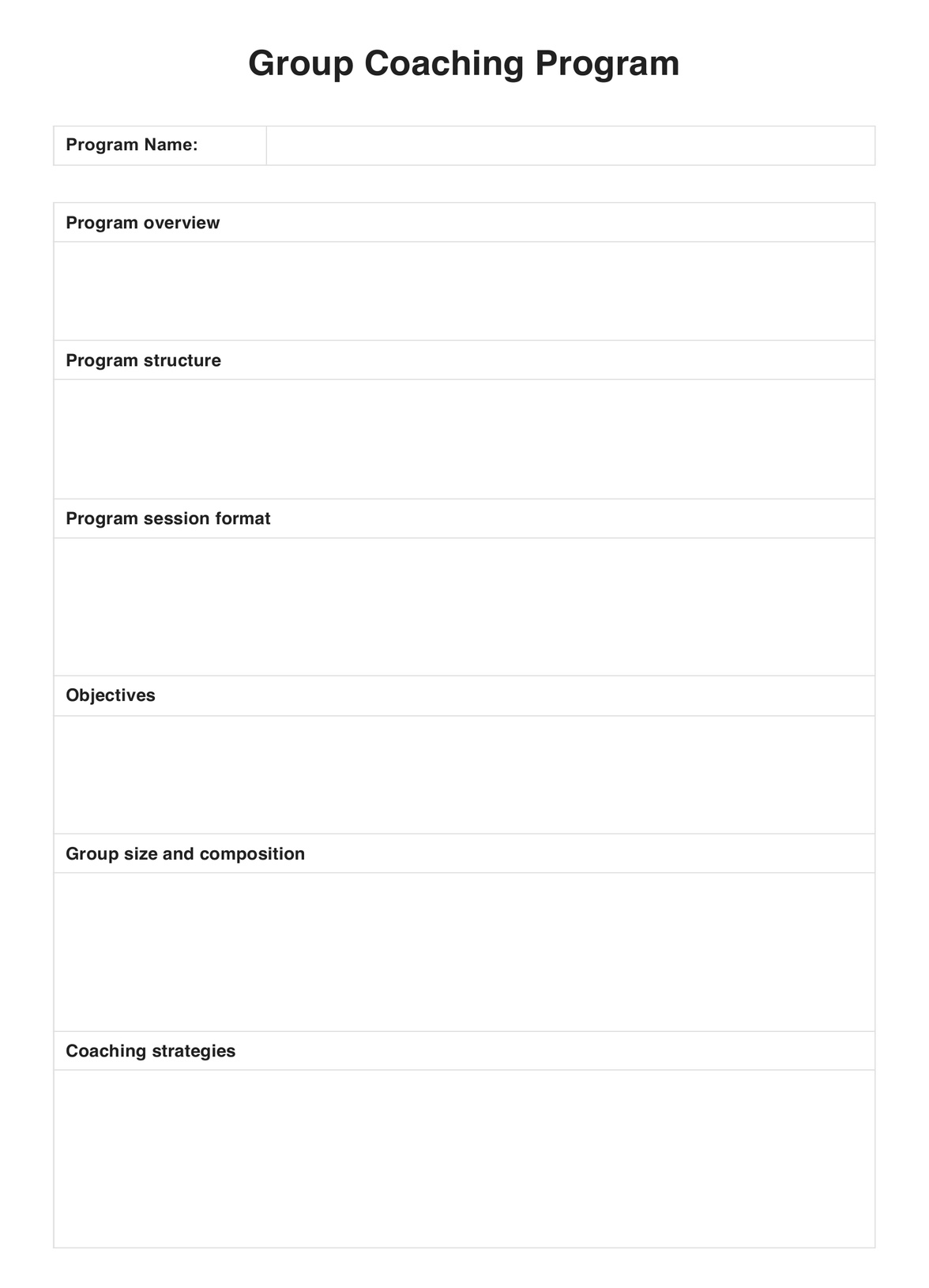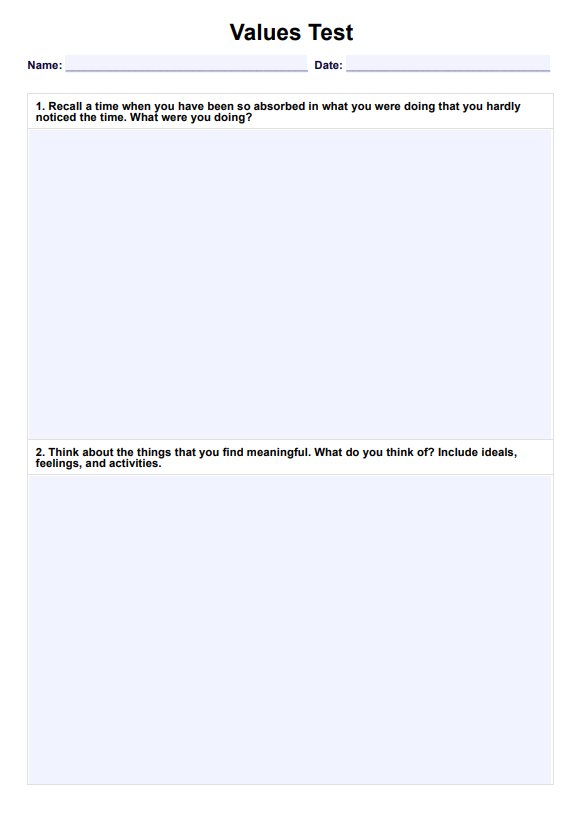Brief Cognitive Assessment Tool
The Brief Cognitive Assessment Tool is a comprehensive, multi-domain cognitive assessment to efficiently evaluate cognitive functions and provide insights.


The Brief Cognitive Assessment Tool (BCAT)
The Brief Cognitive Assessment Tool (BCAT) is a structured instrument developed to evaluate cognitive function, cognitive skills, and cognitive impairments across various domains. This tool is particularly valuable in the context of assessing individuals for potential cognitive impairment, dementia, or other cognitive disorders. The BCAT encompasses a range of cognitive domains, including memory, attention, language, executive function, and visuospatial skills, offering a well-rounded evaluation.
One of the distinctive features of the BCAT is its efficiency, allowing for a comprehensive cognitive assessment within a relatively short period. This makes it particularly useful in various healthcare settings, including primary care, geriatrics, and neurology. The instrument is designed to be user-friendly, facilitating ease of administration by healthcare professionals, including physicians, nurses, and other trained staff.
The BCAT incorporates evidence-based practices in cognitive assessment, drawing on established principles in neuropsychology and geriatric care. It takes into account the multifaceted nature of cognitive function and the importance of early detection of cognitive disorders. The comprehensive nature of the BCAT enables practitioners to identify specific areas of cognitive strengths and weaknesses, guiding subsequent interventions, care planning, and support strategies.
Brief Cognitive Assessment Tool Template
Brief Cognitive Assessment Tool Example
What does the BCAT Test assess?
This multi-domain cognitive assessment tool addresses key cognitive domains, providing a comprehensive overview of an individual's cognitive abilities.
- Orientation: The BCAT assesses an individual's orientation, including awareness of time (date, day of the week, year), place (current location, city, state), and person (own name, age, birthdate). This foundational domain gauges basic cognitive orientation and awareness.
- Attention: The tool measures attention by evaluating the ability to focus, maintain concentration, and selectively attend to specific information while disregarding distractions. Tasks may include repeating numbers forward and backward, subtracting numbers serially, and visually scanning for specific targets.
- Memory: BCAT assesses both immediate and delayed verbal recall and visual information. Tasks may involve learning and recalling a list of words or a story, as well as copying and later reproducing a geometric figure.
- Language: The language domain evaluates various aspects of language comprehension and expression, such as naming objects or pictures, following verbal instructions, repeating sentences, and generating words within a given category.
- Visuospatial skills: This domain assesses the ability to perceive and manipulate visual information, including tasks like copying a complex figure, drawing a clock, and identifying overlapping shapes.
Executive functioning: BCAT evaluates higher-order cognitive abilities involved in planning, organizing, problem-solving, and decision-making. It may assess mental flexibility, abstract reasoning, and the inhibition of impulsive responses.
When to administer the BCAT Test
Screening for cognitive impairment:
- Used as a shorter version screening tool to identify individuals who may have cognitive impairment and warrant further evaluation. This is particularly relevant to those who are trying to track cognitive ability and other cognitive impairments, especially in aging mental health care.
- Often administered in primary care settings, memory clinics, or during geriatric assessments.
Tracking cognitive changes over time:
- Administered serially to monitor cognitive function and detect any decline or improvement over time.
- Used to track the progression of cognitive disorders or assess interventions' effectiveness.
Evaluating cognitive function in specific populations:
- Used in research studies to assess cognitive function in various populations, such as older adults, individuals with neurological disorders, or those undergoing medical treatments that may affect cognition.
Assessing cognitive function in clinical settings:
- Used in various clinical settings, including:
- Hospitals: To assess cognitive status after a stroke, head injury, or other neurological events.
- Rehabilitation centers: To evaluate cognitive abilities and guide rehabilitation planning.
- Mental health clinics: To assess cognitive functioning in individuals with mental health disorders.
- Research studies: To investigate cognitive function in various research contexts.
Determining decision-making capacity:
- In some cases, the BCAT score may be used to help assess an individual's ability to make informed decisions about their medical care or financial affairs.
Next steps: interpreting your results
Scoring:
- Each task within the BCAT is scored individually, with points awarded based on accuracy and performance.
- The scores from each domain are usually combined to create a total score.
- The specific scoring methods and cutoff scores can vary depending on the version of the BCAT used.
Interpretation considerations:
- Standardized scores: BCAT results are often expressed as standardized scores, which compare an individual's performance to a normative sample of people of similar age and education level.
- Cutoff scores: Cutoff scores are used to identify individuals who may have cognitive impairment and warrant further evaluation.
- Clinical context: BCAT results should always be interpreted in the context of other clinical information, such as medical history, physical examination, and other cognitive assessments.
- Qualified professionals: Interpretation of BCAT results should be done by qualified healthcare professionals with expertise in cognitive assessment, such as physicians, psychologists, or neuropsychologists.
General interpretation guidelines:
- Normal range: Scores within the normal range typically suggest that cognitive function is intact.
- Potential impairment: Scores below the normal range may suggest potential cognitive impairment, but further evaluation is needed to confirm a diagnosis.
- Domain-specific strengths and weaknesses: Even within a normal range, scores can provide insights into specific cognitive strengths and weaknesses.
Follow-up steps:
- If BCAT results suggest cognitive impairment, further evaluation is typically recommended.
- This may include a comprehensive neuropsychological assessment, medical testing, or imaging studies to determine the underlying cause of the impairment.
- A diagnosis of cognitive impairment can lead to appropriate treatment, support, and management strategies.
Research and evidence
The Brief Cognitive Assessment Tool (BCAT) has emerged as a pivotal short version, an upper end screening measure for cognitive dysfunction, with a specific focus on contextual memory and executive control functions. A research study involving 104 older adults, sourced from assisted-living facilities and referred for neuropsychological evaluation, underscores the BCAT's significance. Rigorous psychometric analyses validate the BCAT's robustness, revealing compelling evidence for reliability, construct validity, and predictive validity.
The utility of the BCAT in distinguishing dementia from mild cognitive impairment proved to be exceptional, demonstrating a sensitivity of .99, specificity of .77, and an impressive area under the receiver-operating characteristic (ROC) curve of .95. Notably, executive control, contextual memory, and attentional capacity items emerged as the most reliable predictors for the diagnostic category and instrumental activities of daily living. This research highlights the BCAT's pivotal role in precise cognitive assessment, offering a reliable and valid tool for differentiating cognitive disorders and informing targeted interventions in older adult populations (Mansbach et al.).
Other cognitive functioning assessments
Comprehensive neuropsychological evaluations:
A gold standard in cognitive assessment, comprehensive neuropsychological evaluations involve in-depth tests that span various cognitive domains, such as memory, attention, and language. Typically conducted over multiple sessions, these evaluations, exemplified by tools like the Wechsler Adult Intelligence Scale (WAIS) and the Wechsler Memory Scale (WMS), are ideal for diagnosing specific cognitive disorders, understanding individual strengths and weaknesses, and formulating targeted treatment recommendations.
Short cognitive screenings:
Designed for quick and efficient cognitive assessment, short cognitive screenings provide a broad evaluation of cognitive functioning within a relatively short timeframe of 15-30 minutes. Examples include the Mini-Cog, Saint Louis University Mental Status Examination (SLUMS), and Short Battery for Mental Status (SBMS). These screenings are ideal for initial assessments to detect potential cognitive impairment and to monitor changes over time.
Domain-specific assessments:
For a more targeted approach, domain-specific assessments delve deeper into particular cognitive functions like memory, language, or executive function. These assessments are employed when concerns arise in a specific domain, aiding in a more focused and differential diagnosis. Examples include the Rey Auditory Verbal Learning Test (RAVLT) for memory, the Boston Naming Test for language, and the Stroop Color Word Test for executive function.
Neuroimaging techniques:
Utilizing advanced imaging technologies, and neuroimaging techniques allow for the visualization of brain structure and function. Techniques like Magnetic Resonance Imaging (MRI), Functional Magnetic Resonance Imaging (fMRI), and Positron Emission Tomography (PET) offer insights into potential neurological underpinnings of cognitive difficulties. These assessments are particularly helpful in investigating specific brain anomalies and assisting in the diagnosis of certain neurological disorders.
Alternative tests:
Recognizing the importance of cultural sensitivity, alternative tests are adapted to consider cultural and linguistic differences during assessment. Additionally, there are tests modified for individuals with motor or communication limitations. Informal assessments, involving observations of daily activities and interactions, can also provide valuable clues about cognitive abilities.
Choosing the right assessment:
Selecting the most suitable assessment depends on various factors, including presenting concerns, clinical context, desired information, and individual needs. Guidance from a qualified healthcare professional, such as a neuropsychologist or neurologist, is crucial for determining the most informative and valuable assessment approach tailored to an individual's unique circumstances.
References
Mansbach, William E., et al. “The Brief Cognitive Assessment Tool (BCAT): A New Test Emphasizing Contextual Memory, Executive Functions, Attentional Capacity, and the Prediction of Instrumental Activities of Daily Living.” Journal of Clinical and Experimental Neuropsychology, vol. 34, no. 2, Feb. 2012, pp. 183–194, https://doi.org/10.1080/13803395.2011.630649. Accessed 24 June 2019.
Commonly asked questions
BCAT is a cognitive assessment tool designed to evaluate a range of cognitive functions efficiently. It assesses various cognitive domains, including memory and executive functions, emphasizing contextual memory. BCAT is particularly useful in identifying cognitive changes, providing diagnostic insights, and offering solutions for healthcare professionals and individuals facing cognitive challenges.
BCAT plays a crucial role in the assessment of dementia and cognitive decline by targeting attention, memory, and executive functions. It is sensitive to cognitive impairments and severe cognitive impairment, making it a valuable tool for tracking cognitive changes over time. BCAT's utility extends to offering solutions for individuals experiencing cognitive decline, contributing to a comprehensive understanding of cognitive diagnosis.
BCAT is beneficial for older adults, individuals in assisted living facilities, and those facing cognitive impairments. It is applied in healthcare settings, neuropsychological evaluations, and construct validity and predictive assessments. BCAT's short form and shorter versions make it unique and applied in various contexts, including daily living assessments, making it a valuable tool for healthcare professionals dealing with complex care situations.


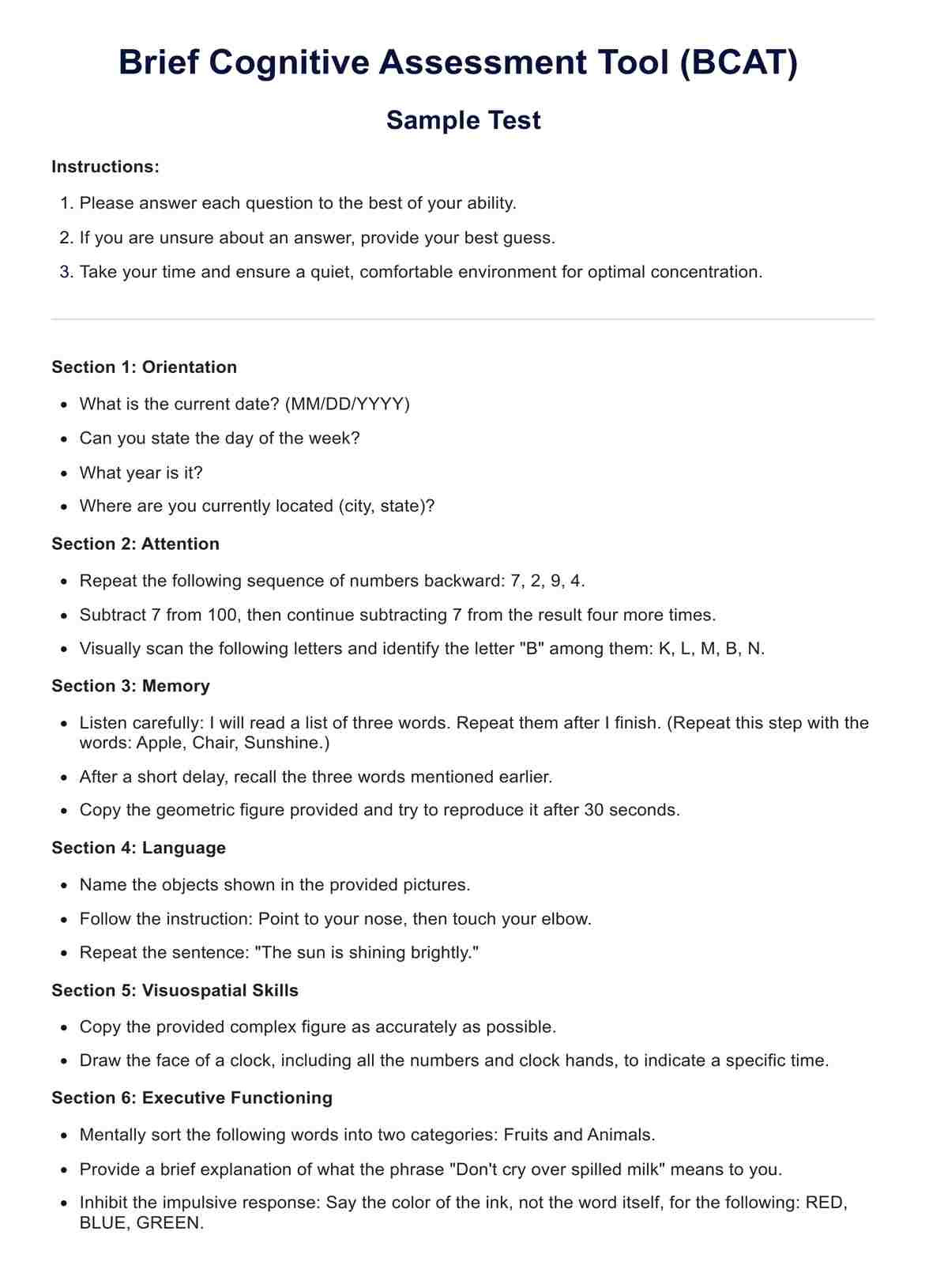
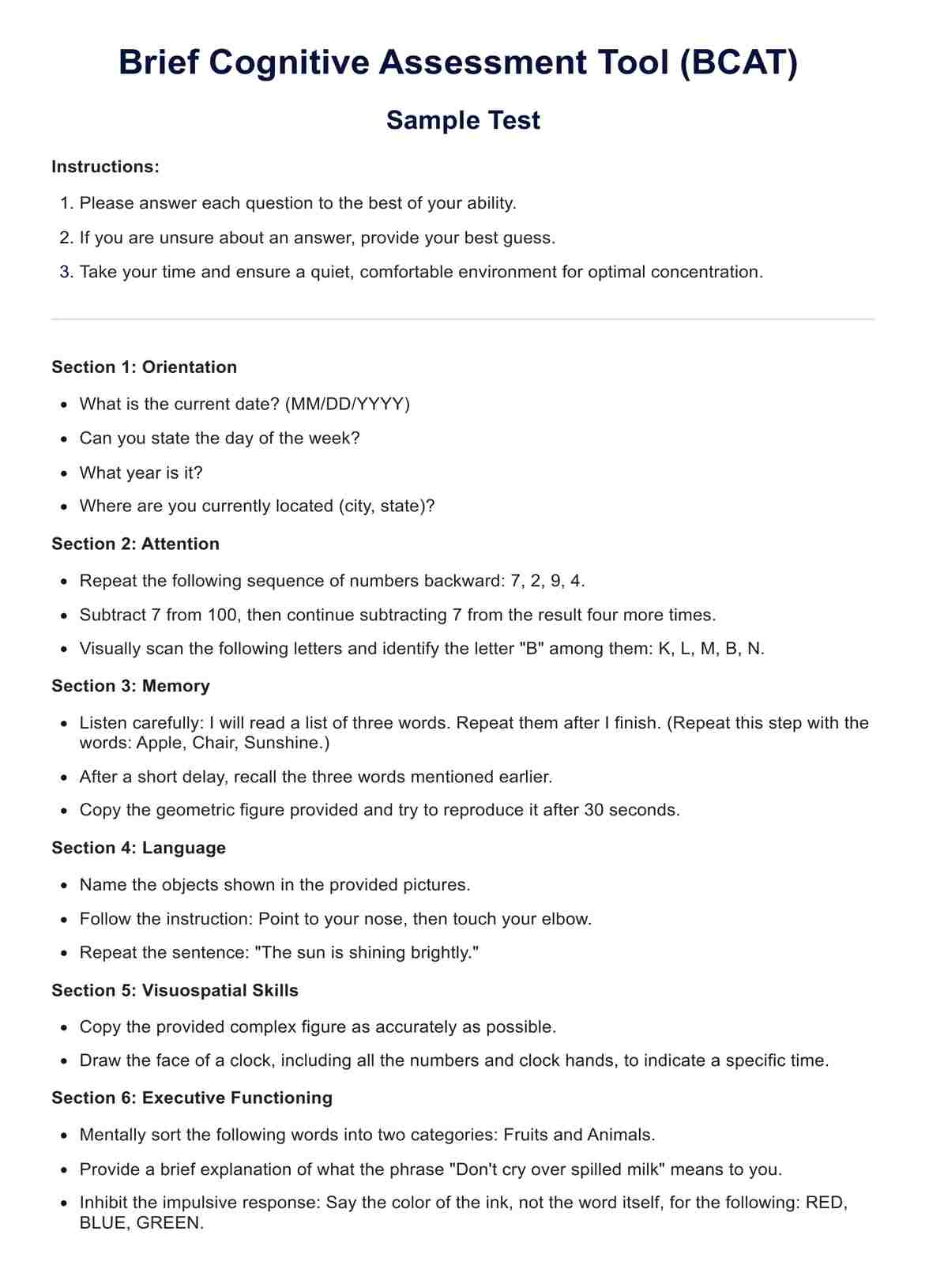

















-template.jpg)



























